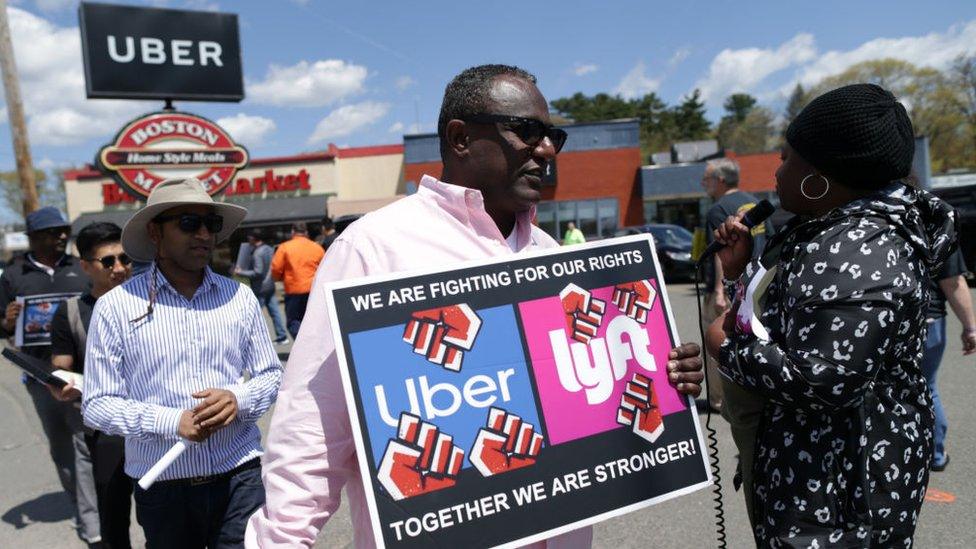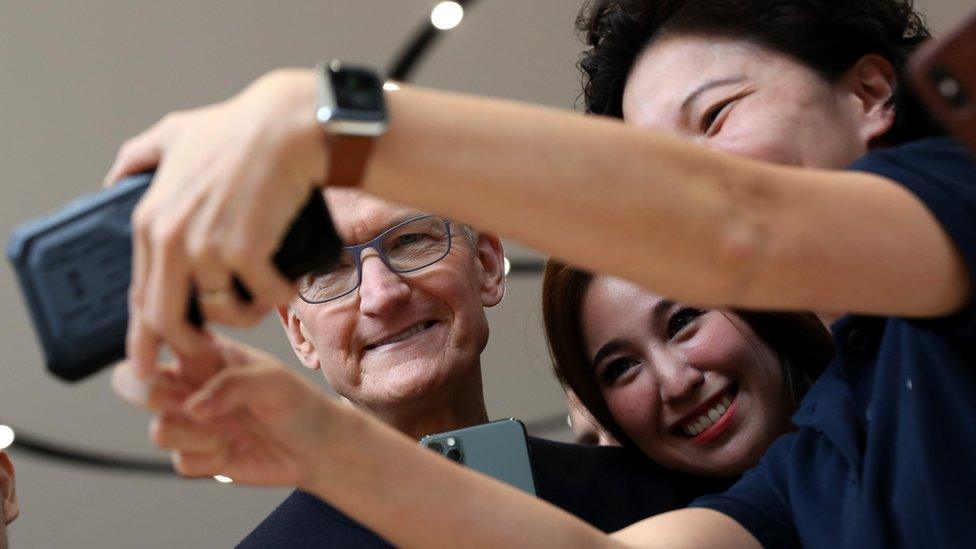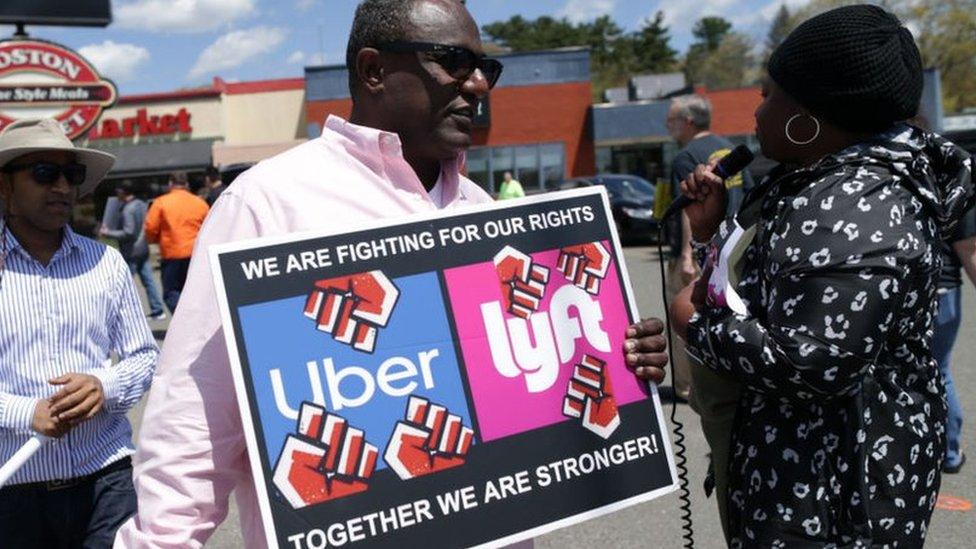Tech Tent: The end of the gig economy?
- Published

The Californian law might mean more rights for workers in the gig economy
Welcome to the gig economy - the new business model of the smartphone era.
Casual workers providing a service are connected, via an app, with consumers - and companies like Uber, Lyft and Taskrabbit take a healthy cut of their earnings.
But on Tech Tent we ask whether a new law could pose a threat to the viability of these gig economy businesses.

Stream or download, external the latest Tech Tent podcast
Listen live every Friday at 14:00 GMT on the BBC World Service
In California, the state where many of these companies are based, lawmakers have passed a bill that paves the way for gig-economy workers to get holiday and sick pay. Some estimates suggest costs for firms like Uber would increase by 30% if they had to treat workers as employees.
These companies may have quickly achieved multi-billion-dollar valuations but they are nearly all making heavy losses, so anything that increases their costs could make them unsustainable.
Uber has played down the impact of the new law, with its chief legal officer, Tony West, telling reporters it "does not provide drivers' benefits, give them the right to organise, or classify them as employees".
But just days after the new law was passed, one driver has already sued the company. Angela McRay accused Uber of misclassifying drivers as independent contractors.
Lyft, which has not expanded internationally in the same way as Uber, seems more concerned about the impact of the law. The company's Adrian Durbin tells Tech Tent that if it has to give drivers employee status there will be consequences for customers.
"Wait times would likely increase. There might be some parts of the state where you wouldn't be able to get a lift at all, and it might cost more money," he says.
Lyft appears to be keener to adapt to this changing world than Uber, talking of giving drivers more benefits and allowing them union access.
Taskrabbit, a platform which puts customers in touch with people who can do small jobs, such as assembling furniture, will also have a challenge to make the books balance. Imagine, for instance, the cost of giving health insurance to the 60,000 who do the tasks, some on a regular basis; others very occasionally.

With no ability to use 5G networks, are Apple's new iPhones future-proof?
But its chief executive, Stacy Brown-Philpot, tells us she is undaunted. "We have a community of people who are totally dependent on what we're doing," she says. "So I like to believe that we can find a way that meets whatever regulations have been imposed on us, and then still allows for our platform to exist... so that if you want to work as an independent contractor, want to work in a flexible way, you can do that."
And it is clear that while some gig economy workers feel exploited, others enjoy the flexibility of the work. "I pick up my daughter every day and being flexible is very important to me," one Californian Uber driver told us. "Becoming an employee would lock you down - I don't think a lot of drivers would be happy with that."
Other lawmakers around the world are moving to give gig-economy workers greater rights. Of course, the end result could be that the giants of the industry, like Uber, survive while the smaller challengers go to the wall.
Also in this week's programme:
As Apple unveils its latest iPhones we ask whether a lack of 5G capability will put off shoppers who want to hold on to their phones for more than a couple of years.
And we visit Europe's largest data centre to find out just how much security and energy is involved in storing all our photos, video and other data in the cloud.
- Published10 September 2019

- Published11 September 2019

